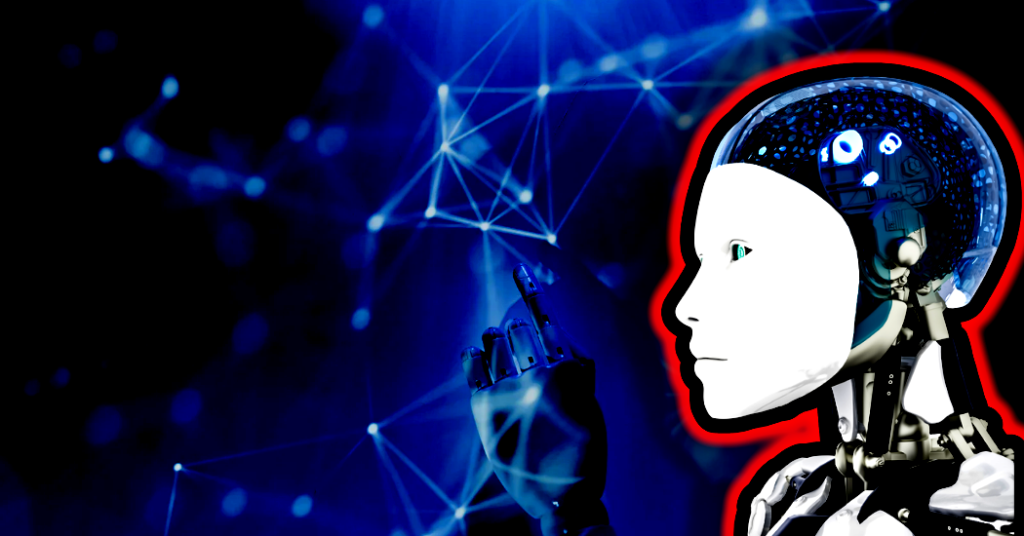AI is becoming more and more ingrained into our lives. It affects everything from the way we search for information, to the way we communicate with those around us.
Leave aside the Sci-Fis, there is no need to worry that this “smart” machine is going to take over the world. There are plenty of opportunities for us if we want to improve upon it. Our human intelligence can be integrated into artificial intelligence to increase the machine’s intelligence, while also creating a better interface with the AI and more fulfilling life.
The concern of machine intelligence and infinity

In just a few years’ time, machines have become an integral part of our lives; in a way that was impossible only a decade ago. The way we communicate, the way we entertain ourselves, and the way we make our living are all affected by a machine’s intelligence. And for a good reason – it was invented for our use.
While machines are getting smarter, there is a growing concern within the AI community. The concern is if machines start helping machines with intelligence, there can be an infinite run of self-improvement. Some believe that computers can start improving computers and that machine intelligence will only get better and better. As a result, we will run into a wall where there is no way to further progress. I call this the “Infinite run” of machine intelligence.
Related Post:
Humans are always adding to their knowledge and experience. Do we ever stop getting smarter? No, and neither will machines.
In the present, which I am defining as the next few decades, there is no need to worry about this loop of machine intelligence. But with the exponential growth of machine intelligence – and our connection to it – this has become a point of concern for many AI experts.
As the industry progresses and machines take on more responsibility, there will be a point where we cannot look at the data we are collecting. This is when smart machines can become “smart” for real.
With all of this data at its disposal, an AI could devise an equation to make other machines in its network more intelligent. And if those machines were made intelligent enough to design a better machine, one could jump back into an infinite run of intelligence – making computers smarter than humans.
If a machine gets human capabilities too, it will most likely lead to “infinite intelligence”; it’s just because of that compound effect we discussed earlier in the article.
This essentially means that there’s only so much we can do to improve upon artificial intelligence – especially if we are relying on our logical minds to figure out how to build it in the first place.
As the future of computers & our lives turns to a future of inexorably smarter machines, there are many ways we can improve upon them, and the majority of these improvements center around improving the intelligence behind the machine.
Self-improvement of machines: an infinite run?
The day a machine becomes capable enough to create a machine smarter than it (even 0.000001% smarter), we will start heading towards the infinity-run of machine intelligence. This “algorithm” could then be used to make another “smarter” machine; it, in turn, becomes capable of creating a new machine even smarter than itself.
Is it possible?
It is still about at least 50 years before we will have the first machine that can do this. But with enough computational resources and the right algorithms, it is achievable.
But I believe that it is important for AI experts and researchers to think about how we can make our machines more intelligent – the way we can make our computers more intelligent. So let’s look at ways of doing so.
The simplest way is to give your AI a human brain and make it like ours. But this one is just one of those simple ideas which are far more complicated to execute.
As the concept of machines “becoming smarter than us”, seems to be a general concern, many AI experts are finding ways to make sure that it does not happen. There is a new field of research known as “human-inspired AI”. The research focuses on making machines more human in the sense that they have human intelligence, but still have some kind of machine logic behind it.
To do this, many researchers are trying to create machines with neural networks — networks that mimic the way neurons communicate in our brains. The goal is to see if we can create a “brain” on a chip that mimics the way our neurons communicate, adding machine intelligence to machines.
Machine learning will let machines solve problems they never conceived of before. And by doing so, they can evolve faster than humans can. However, this might become a problem when those machines evolve into something we cannot control; it may be something uncontrollable by us or any other type of human intelligence.
What would immense capabilities mean for AI?

Ok! We all know this, but it is still true: you can see computers can solve problems in seconds. And it can take “our brain” hours to do the same. The human brain and its capabilities are limited, so they cannot make rocket-science calculations in seconds. Machines can do that. And if a machine gets human capabilities too, it will most likely lead to “infinite intelligence”; it’s just because of that compound effect we discussed earlier in the article.
The biggest concerns are that machine intelligence can become so clever, so effective and so fast, that it might achieve the level of artificial intelligence that we(our brain) cannot imagine.
Read: the concept of AI?
This is why many researchers are working on machine-learning algorithms. They’re trying to boost their machine’s capabilities by teaching them how to learn like humans. The more they know, the smarter they become. And why not? We do this all day long with our human brains. After all, the human brain is a work of art when it comes to learning new things. Further, if we can teach machines to think like humans and process information in the same ways, we can create some powerful machines in the near future.
Also Read: Can AI systems be modeled on the human brain?
To Conclude,
Such a run of infinite intelligence for machines is highly unlikely to be developed in the next few decades, but something like this could still happen at any time in the future. It’s best to be prepared.
- AI-Powered PCs: Overhyped Trend or Emerging Reality? - August 21, 2024
- Princeton’s AI revolutionizes fusion reactor performance - August 7, 2024
- Large language models could revolutionize finance sector within two years - March 27, 2024



